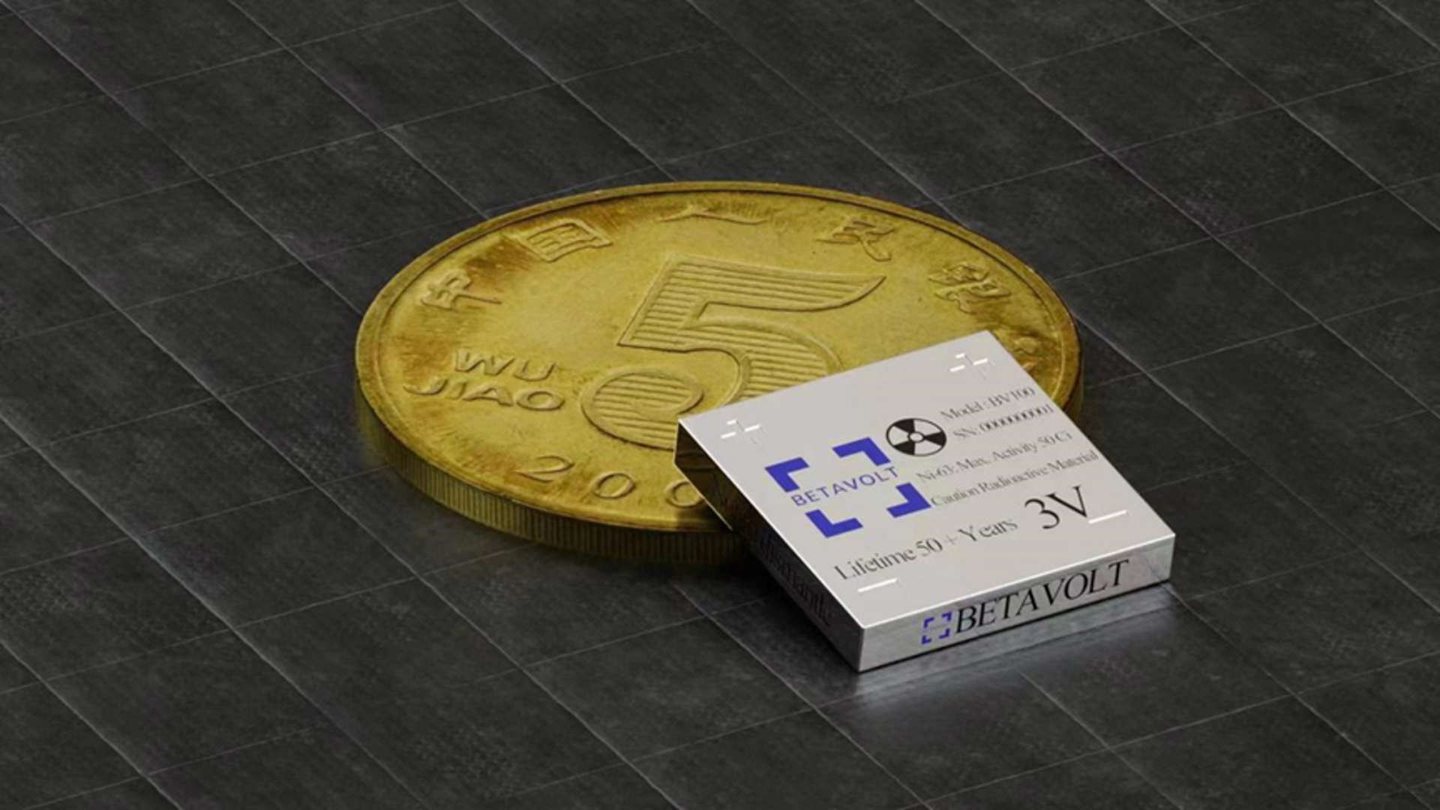Miniature nuclear battery produces 50 years of power without needing to charge
Beijing-based startup has introduced a revolutionary nuclear battery that can provide uninterrupted electricity for up to half a century.

This groundbreaking innovation heralds a new era in energy storage by achieving the miniaturization of atomic energy, fitting 63 nuclear isotopes into a module smaller than a coin. (CREDIT: Betavolt Technologies)
In a remarkable technological leap, Beijing-based startup Betavolt has introduced a revolutionary nuclear battery that claims to provide uninterrupted electricity for up to half a century without the need for charging or maintenance.
This groundbreaking innovation heralds a new era in energy storage by achieving the miniaturization of atomic energy, fitting 63 nuclear isotopes into a module smaller than a coin.
Betavolt's nuclear battery, a global first of its kind, has successfully entered the pilot testing phase and is poised to be mass-produced for a wide array of commercial applications, including smartphones and drones.
The company envisions its Betavolt atomic energy batteries as a solution to long-lasting power supply needs in diverse scenarios such as aerospace, AI equipment, medical devices, microprocessors, advanced sensors, small drones, and micro-robots.
Related Stories
In a press release, Betavolt expressed its anticipation that this groundbreaking energy innovation would bolster China's position in the ongoing AI technological revolution. The nuclear battery operates by harnessing the energy generated through the decay of isotopes, a concept initially explored in the 20th century.
While scientists in the Soviet Union and the United States pioneered this technology for use in spacecraft, underwater systems, and remote scientific stations, the early iterations were both costly and cumbersome.
China has now embarked on the ambitious endeavor to miniaturize and commercialize nuclear batteries as part of its 14th Five-Year Plan, aimed at strengthening the nation's economy from 2021 to 2025. Simultaneously, research institutions in the US and Europe are also actively engaged in the development of similar technologies.
Tiny, nuclear, Betavolt battery. (CREDIT: Betavolt Technology)
Betavolt's inaugural nuclear battery boasts the capability to deliver 100 microwatts of power with a voltage of 3V while measuring a mere 15x15x5 cubic millimeters.
However, the company has ambitious plans to produce a battery with 1 watt of power by the year 2025. Their compact size opens the door to a myriad of possibilities, including mobile phones that never require charging and drones with perpetual flight capabilities.
Component layers of the revolutionary Betavolt battery. (CREDIT: Betavolt Technology)
Furthermore, the layered design of Betavolt's nuclear battery ensures safety. It is engineered to withstand sudden force without catching fire or exploding, providing added reassurance to potential users. The battery also demonstrates remarkable resilience, functioning efficiently in temperatures ranging from -60°C to 120°C.
Betavolt takes pride in highlighting the safety and environmental friendliness of its atomic energy batteries. The company emphasizes that these batteries have no external radiation and are well-suited for use in medical devices like pacemakers, artificial hearts, and cochlear implants within the human body.
Moreover, Betavolt underscores the environmental benefits of their technology. After the decay period, the 63 isotopes within the battery transform into a stable copper isotope, which is non-radioactive and poses no threat or pollution to the environment. This feature underscores the commitment to sustainability and eco-friendliness.
As China spearheads this transformative technology, the global community eagerly awaits the widespread commercial availability of Betavolt's atomic energy batteries, offering a promising glimpse into the future of sustainable and long-lasting power solutions.
Note: Materials provided above by The Brighter Side of News. Content may be edited for style and length.
Like these kind of feel good stories? Get the Brighter Side of News' newsletter.
Joseph Shavit
Head Science News Writer | Communicating Innovation & Discovery
Based in Los Angeles, Joseph Shavit is an accomplished science journalist, head science news writer and co-founder at The Brighter Side of News, where he translates cutting-edge discoveries into compelling stories for a broad audience. With a strong background spanning science, business, product management, media leadership, and entrepreneurship, Joseph brings a unique perspective to science communication. His expertise allows him to uncover the intersection of technological advancements and market potential, shedding light on how groundbreaking research evolves into transformative products and industries.
